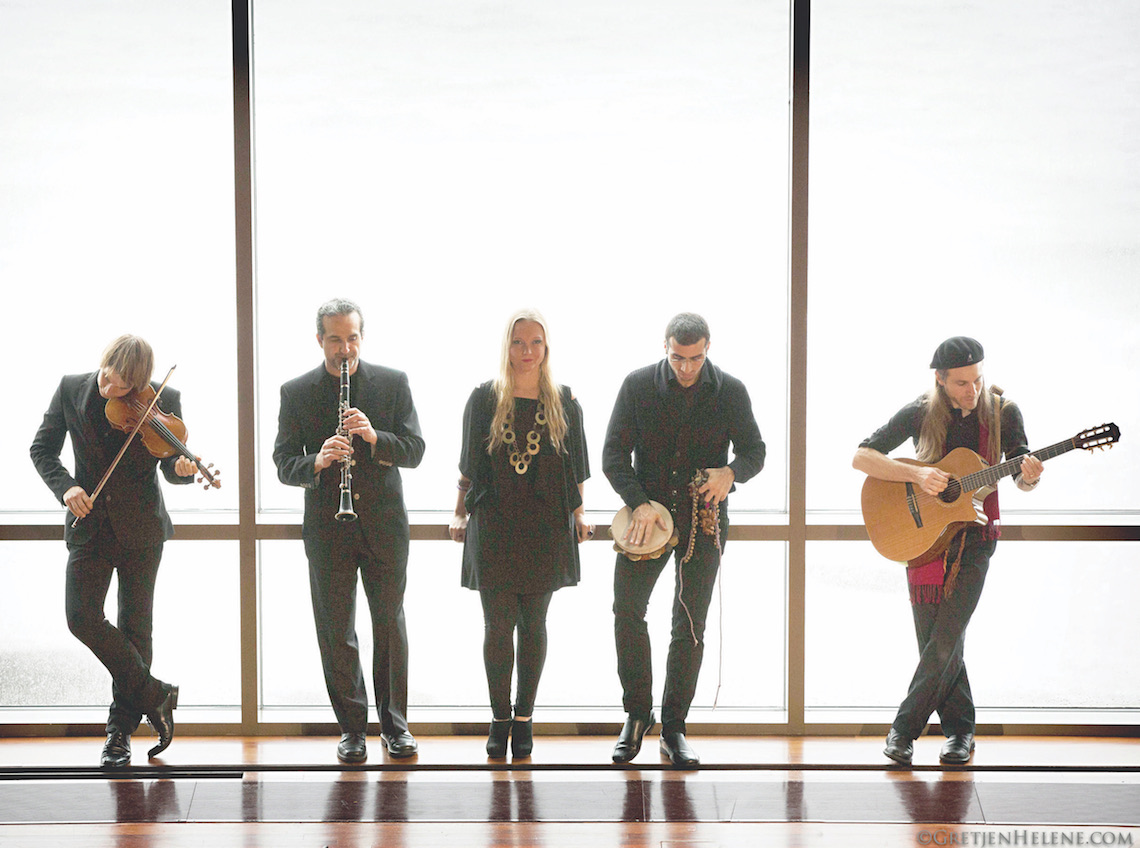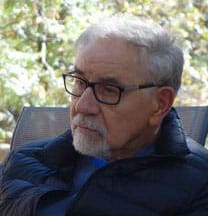
“Tales From the Forgotten Kingdom” sounds like the name of a sword-and-sorcery television show. The truth, though, is that it’s a theatrical musical presentation that tells romantic, touching and sometimes heart-rending stories of Sephardic communities during the early part of the 20th century in cities such as Smyrna (Izmir) and Salonika (Thessaloniki) on the Aegean Sea, Sarajevo, now in Bosnia and Herzegovina, and Jerusalem.
The show features more than a dozen songs in Ladino, the Judeo-Spanish dialect Sephardic Jews took with them when they were exiled from Spain and Portugal more than 500 years ago, with an English narration that translates the songs and provides historical context.
Conceived, written, and composed in 2011 by the Israeli-born guitarist, singer and composer Guy Mendilow, 39, “Tales From the Forgotten Kingdom” has been staged dozens of times at festivals, theaters, colleges and community centers throughout the United States and Canada, including at the Skirball Cultural Center in 2014. Mendilow and his quintet, which includes a Palestinian percussionist and an Argentine vocalist, have received many honors and awards, including a grant from the National Endowment for the Arts.
The Ladino-language songs in “Tales From the Forgotten Kingdom” — always charming and occasionally mournful — are respectful to tradition but unique and fresh. And on Oct. 6, the show finally will be available on CD, with the title “The Forgotten Kingdom.” Actually, it will be two CDs, because one features the 14 songs in Ladino, while the other is the soundtrack of the entire show: all the songs, plus the English narration.
According to Mendilow, it has taken six years for the show to be recorded because it has evolved over the years, with the ensemble tweaking the songs and narration of their live performances.
The poetic and moving English narration points the audience in the direction of the story, Mendilow said from his home in Boston, “but it doesn’t give you everything, it doesn’t give you all the details, so you are left to imagine it yourself. You end up creating characters in your own image, and creating settings and scenarios and predicaments made of the fabric of your own experience. The show is intended for audiences that don’t know about Sephardic life and culture, so this kind of universality is important.”
Although not of Sephardic background, Mendilow — who has studied ethnomusicology and is very much at home with English, Hebrew, Spanish and Portuguese — has spent many years exploring Sephardic history, culture and its musical traditions.
Mendilow said that Sephardim were an integral part of the Ottoman Empire for hundreds of years. He feels it’s important to grasp how they lived, especially “the way they worked across ethnic, religious and cultural lines for generations. I’m fascinated by the historical implications of that, and how that may apply to the current world. … And then it all ended; it all crumbled in the wake of the First World War. This points to questions we could ask ourselves now. What does it mean to watch your world end? What does it mean to straddle two eras, an older world and a newer one?”
Mendilow cited World War I and the collapse of the Ottoman Empire as a “seismic shift in the history of European culture and the story of Western cultures.” It was also a seismic shift for the Sephardic cultures that were embedded in that empire.
There is one song in the show that highlights this dilemma.
“La Vuelta del Marido” [The Husband’s Return] is an old Turkish-Sephardic song, Mendilow said. “It describes soldiers riding with breastplates, the horses are wearing breastplates of silver, and the soldiers have spears … and they’re very gallant, wearing white gloves. This is how officers in the early battles of the First World War arrived. And they were met with a storm of steel. And that’s the moment the old world ended. … What was it like to have gone through that change? This is haunting for me because I wonder if we, too, are at a crossroad.”
If World War I was the great change, Mendilow said, World War II “nailed the coffin on the old world” as well as on the Sephardic communities that had existed — and often thrived — in Europe for hundreds of years. “We in the U.S. don’t really know anything about those struggles,” he said. “You talk with people about the Second World War and you ask them what happened in Greece, what happened in Turkey, what happened in Bosnia, there’s a kind of blank spot on the map; and these are stories that are important to know.”
The arc of “Tales From the Forgotten Kingdom” follows European-Sephardic communities from the period during which the Ottoman Empire still existed until 1943, when train transports took Salonika Sephardim and other Greek Jews to Auschwitz.
The songs in the show are about loss, of course, but Mendilow emphasized that they’re also about hope. “There’s a question that runs through the show: When you’ve witnessed the end of your world, and you’re still around, what does it mean to start again?”
In “Tales From the Forgotten Kingdom,” there are clear echoes of today’s headlines: old civilizations forced into exile by war and famine, loss of cultural heritage and adapting to an alien land.
Mendilow is acutely aware of the resemblances his songs and narration bear to the present.
“If [people who listen to the songs] develop a fascination for Ladino music, great. Fascination for the history, great,” he said. “But my hope is also that they’d be left with some questions. And the main question is: In what way are these stories still playing out today? How are these stories not just about long ago and far away? How are these stories also in some way about us?”























 More news and opinions than at a Shabbat dinner, right in your inbox.
More news and opinions than at a Shabbat dinner, right in your inbox.